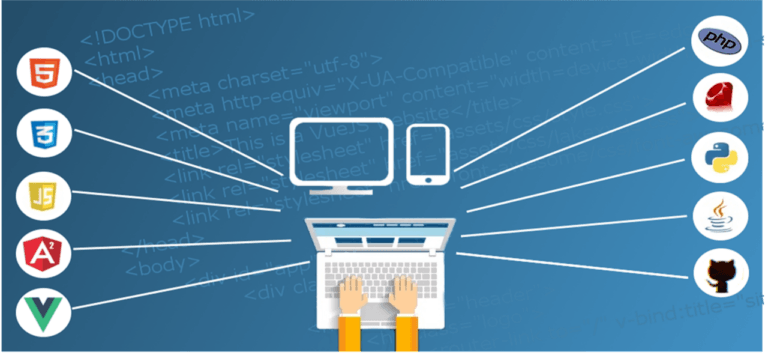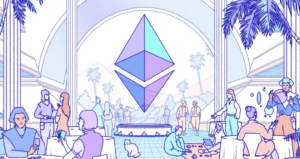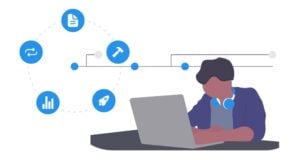Becoming a Full Stack Developer is an excellent way to build a stable career in the tech industry.
In this article, you will find some essential tips to help you kickstart your journey towards becoming a full-stack developer.
Before you dive in, know your Motive and Motivation.
Understanding your motivation is essential. The learning process and the journey of becoming a full-stack developer can be stressful.
It will take time and dedication for you to learn all the languages, frameworks, processes and to sharpen your critical thinking, problem-solving, and iterating many times to get things right.
Full-stack development is long hours of frustration and deep thinking to reach a result that is most of the time invisible.
And that is why you need to know your reasons, as it comes in handy when you’re halfway through the journey and in need of extra motivation.
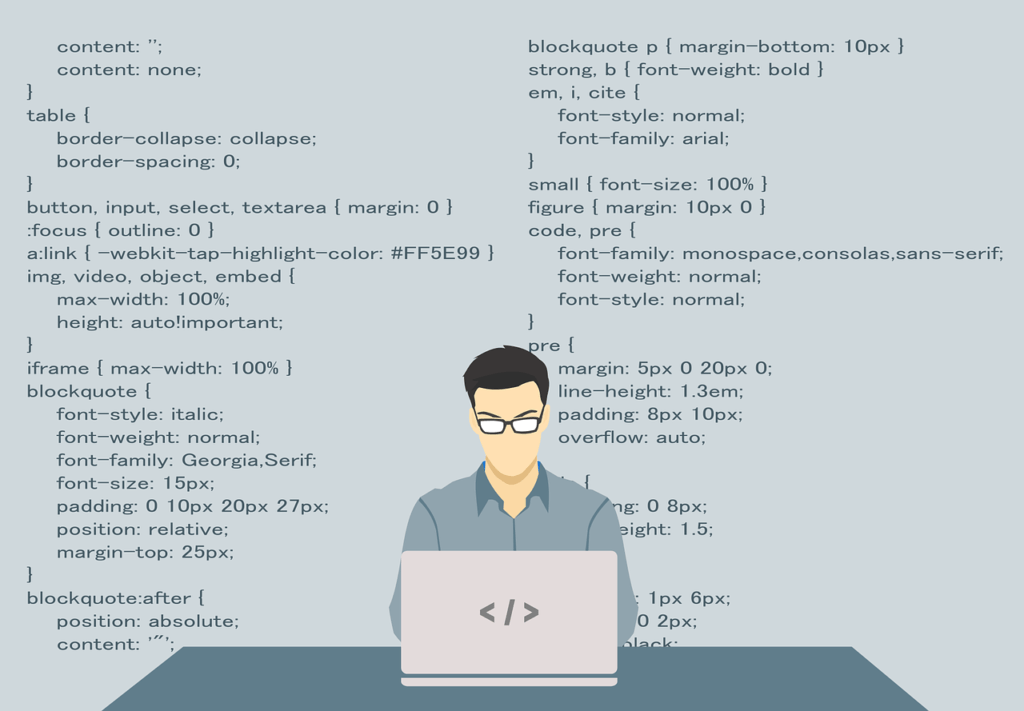
#1 Understand What is a full-stack developer?
The term “full-stack developer” is typically used to refer to the set of technologies used in software development that deal with business applications based on a client-server architecture.
The client (“frontend”) provides a web-based user interface usable on a browser, while the server (“backend”) implements the business logic and data storage.
While many developers specialize in only one of these two aspects, a full stack developer works on both.
Noteworthy:
The set of technologies used on the front end is quite different from those used on the back end, but some overlap. Here is the list of the most important ones to be familiar with within each category:
For Both Front-End and Back-End:
- HTTP
- REST APIs
- JSON/XML
- Version control systems (e.g., Git)
Frontend
- HTML/CSS
- JavaScript
- Web frameworks
Backend
- Server-side languages and frameworks
- Databases (SQL and NoSQL)
- DevOps
Frameworks are ready-made software components that take care of many low-level details and focus on your application’s business needs.
You’ll find them used on almost every project, but be aware there are a lot of them out there, with new ones gaining popularity all the time, and you can’t keep up with them all.
Pick one or two to become familiar with, but don’t bother going more in-depth than necessary due to the amount of churn.
Invest your learning efforts in things that will still be relevant a decade or more from now.

#2 Choose your Learning Path
The abundance of resources and online courses on the world wide web is a blessing and a curse.
The quickest way is to narrow down your search by asking people who’ve already established the industry to share with you their resources.
You can also spend time at a coworking space and talk to developers.
Whether you choose to enroll in an online course or follow your program, you will have to be consistent with your progress and stick to a precise daily schedule.
Discipline is crucial.
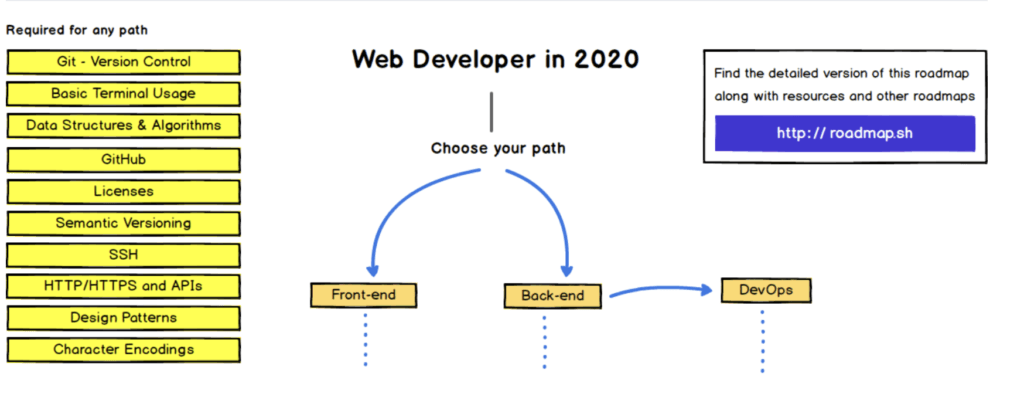
#3 Avoid Search Result-driven Coding
If your problem-solving approach involves trying lots of search terms relating to the thing you want to do in the hopes of finding a discussion or blog post containing the answer, you’re doing it wrong.
An essential skill you must possess as a developer is to protect the integrity of the systems you are building and make sure you find a solution that meets the project requirements.
Don’t let search results hinder your creativity and ability to translate your ideas into code.
Test and debug your code implementation based on an understanding of your design and the software tools you’re using.
It’s OK to use Google to look up API documentation or identify strange error messages if you get stuck, but it’s best used as a reference or fall-back approach.
#4 Don’t tie yourself to a single tech stack
The best developers are generalists who can quickly pick up new technologies and adapt to meet a given project’s needs.
Focus on learning the core principles and gaining experience with various programming languages and software environments to increase your employability.
Technologies get replaced with better ones as time goes by.
Stay flexible and keep abreast of industry trends for long-term success.
#5 Get Active in the online Full Stack Communities
You Found all the cool makers and web development communities on Reddit, Hacker News, Twitter, GitHub…? Great!
Now get to that search bar; any question you might have as a beginner is most likely already answered on those forums.
Reading through the comments and engaging is good, but you can get more value if you share your progress with the community and ask for help/tips when you need it.
That’s how you build a network.
It’s a cycle of getting value, advancing, then giving back to the community.
#6 Prepare to fail—many times.
Learn about building something with the purpose to learn.
In any case, it can always function as something you can show off.
Creating high-quality functioning web/mobile applications with a useful UI and UX, solving the end user’s pain point is what it all that matters.
But to get to that stage, you’ll have to permit yourself to fail over and over; failure and frustration is part of the learning curve.

#7 Get a mentor
The Programmers and Indie hackers communities are some of the most collaborative communities out there.
Of course, they are familiar with the hurdles that come with learning to become full-stack developers, and many are willing to share their knowledge.
Some will charge for their time, others will do it to give back to the community, and some do it because it allows them to practice other soft skills.
#8 Build a Portfolio
Most job listings across all industries require experience, but how do you get that experience?
The good news is to become a full-stack developer, the only resources you need to get said experiences are a cheap laptop and an internet connection.
Your career prospects are 100% dependent on you having the time, motivation, and initiative to go ahead and start building.
You can start with a personal project idea, create an account on GitHub, and start coding.
You could also make your work available as open-source and make sure you write a good quality README.
When you’re ready, include a link to your GitHub profile in your resume to showcase your work.
Carrying even the smallest projects to completion is a highly sought after skill that will give you a massive advantage in your job applications.
For a list of great projects to try, check out: https://github.com/danistefanovic/build-your-own-x.
#9 Equip yourself with strong interpersonal skills
- Problem-solving skills: Full stack developers spend half of their time, if not all of it, solving problems.
- Versatility: Full Stack developers are highly versatile. Their mastery of the entire development process enables them to gain in productivity and thus be able to develop on several platforms simultaneously.
- Good communication skills: Developers must clearly express information and needs to their clients and other colleagues. It is also necessary to be able to work collaboratively with them to achieve results. Written communication is essential since all documentation, reports, specifications are expressed in black and white.
- Team player: Working as a Fullstack Developer often involves team collaboration. The success of the projects relies on fluid communication across teams.
- Attention to detail
- Patience
Are you a Developer and interested in joining the Iglu team?

